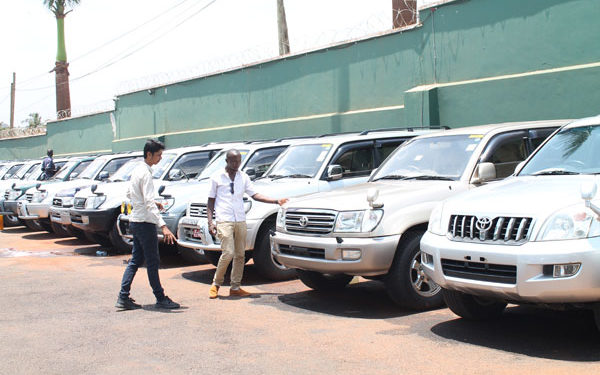Over the last few weeks, pump prices at fuel stations have been rising to the chagrin of many motorists who have taken to social media to loudly complain. Once fuel prices go up, other costs rise too. Fuel is a big cost in almost every aspect of the economy.
Uganda largely depends on the expensive road transport to almost do anything. Water transport is negligible and the last time I read about railways; the story was about the acquisition of wagons that couldn’t fit on the existing railway lines. Once in a while, photos emerge of maize being grown in between the rails in some parts of Uganda.
Dependency on road transport is something that leads to people panicking whenever the fuel pump prices go up especially for those who live and work in greater Kampala — the country’s only major economic hub.
Kampala is devoid of an effective public transport. Although the majority of the people who work in the city walk to work, many others use the unreliable 14-seat taxis, boda bodas or private cars. With the narrowest of roads that are also potholed, traffic congestion is always the order of the day. On average, people who work in Kampala spend at least four hours a day navigating traffic jams. The economy loses a lot of money lost in these traffic jams.
Most of the cars being driven in Uganda are at the tail end of their existence — 15-year olds imported largely from Asia with serious mechanical defects. The older the car, the more expensive it becomes in terms of fuel consumption. Car maintenance is another issue.
Because of the unreliability of public transport, whoever makes some little money thinks of buying a car. It is also a status symbol — somebody has made it in life and many times, somebody buying a 10th hand car is the first in the entire family to do so.
The cars that we buy in Uganda are mainly internal combustion engines (ICEs) although some people have stated buying some hybrids. Fully electric vehicles (apart from those made by Kiira Motors) are almost non-existent yet they would significantly lower the cost of fueling and cut down on people’s expenses. The government should deliberately start promoting the use of electric vehicles, after all, folks at the Ministry of Energy have assured us of increased electricity generation capacity.
The other issue is that Ugandans once they have some bit of money, they love big cars. The bigger the car, the more marks they get from their peers who admire them for having made it in life. So many people would rather drive a very old Land Cruiser V8 instead of a brand-new Toyota Yaris. They would rather spend much more money on an old SUV than a small car that is more efficient. They don’t want to be seen in smaller cars.
The cars that many people buy are actually parked for the better part of the day. Many people who drive 4×4 SUVs don’t even engage the four-wheel option in many months. So the question is, should one buy such a big car that is largely parked for most parts of the day?
Of course there will be sometimes when one may need a full size or medium 4×4 to navigate our terrain such as for fieldwork, visiting some relatives in the countryside or attending some events. Those days for most people are not many in a year. So wouldn’t be cheaper to hire a car for such trips than owning one?
How would this work? You buy a small car for town service (basically from home to work on a daily basis) and then on the day you need the SUV, you could always hire one. The average rate for hiring a 4×4 per a day is around Shs300,000 and it comes with a driver. You only need to buy fuel and then you are driven like a minister in actually a modern, safer and efficient brand new vehicle.
Assuming you need a minimum of Shs50,000 per week day to fuel your car, in a year you are looking at upwards of Shs12 million. If you had a car that uses half the money, you would be saving more than Shs6m a year in fuel and a lot more in service and maintenance and insurance. The cost of buying an old SUV is another cost that could be avoided — money that could be invested elsewhere. When you hire, it could be cheaper especially for those who don’t go in areas with a rough terrain often. Uber and other hailing taxi platforms could be another option. And of course, this is for people who are crying about the increment in fuel prices.
The writer is a communication and visibility consultant. djjuuko@gmail.com
Do you have a story in your community or an opinion to share with us: Email us at editorial@watchdoguganda.com













